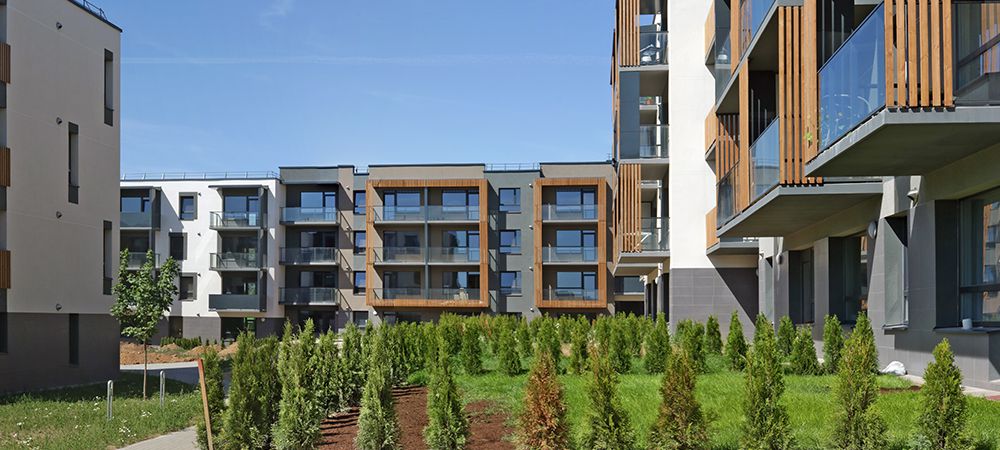Stating that you want to buy an apartment can raise some eyebrows. You might even hear some people say that with the volatility of the current market, it’s not even possible, what with how in-demand housing is, and how much it can cost.
In addition, if you were to search for triplexes and multiplexes, you’d notice that those properties for sale are entire buildings, not individual units. Ask listing agents, and most would offer you condos. So, before getting on to the cost of apartments, it would be best to clarify first how they differ from condos. After that, this article will address the relevant legalities in Toronto real estate.
Difference Between Apartments and Condos in Toronto
Many people think that the main difference between apartments and condos comes down to prestige and cost. People assume that apartments are simple, low-end, low-rise dwellings. Condos, on the other hand, are units in high-end, high-class buildings with plenty of amenities. But that’s not always the case, and that’s only on the surface because there are also other significant differences.
One that is relevant to the topic at hand is the question of apartment ownership.
Typically, a leasing company owns an entire apartment building. They only lease or rent out individual units. For this reason, you cannot buy an apartment unit in Toronto. However, there might be legal remedies to get around that restriction – more on this in the next section.
As for condos, a condominium corporation manages the entire building. They do it under the auspices of a condo board composed of unit owners. You might rent a condo, but you’re likely renting from the owner of the condo, not the condo board or a condo leasing office. And of course, you can purchase a condo, usually from the builder’s sale office when they are being constructed, or from a current owner.
Related article: The Ultimate Buyer’s Guide for Buying a Condo in Toronto

Co-operative and Co-ownership Building
One reason why buying an apartment appeals to some home buyers is cost. Not everyone can afford to buy a house now that the Toronto real estate market is at an all-time high. An apartment seems affordable, except that most people believe you cannot have home ownership in an apartment and are limited to only renting.
But that is not entirely true.
There is a way for you to buy an apartment in Toronto, and you can do that by any of these two ownership types:
- Co-ownership
- Co-operative
Co-ownership Building
Buying an apartment in a co-ownership building is one of the options. In this scenario, your name appears as a legal owner in the title because you own an undivided percentage of the property. Your legal ownership gives you the right to occupy a specific unit. The deed you receive would show how many portions of the property you own.
Highlights of a co-ownership building agreement:
- Exclusive right to occupy a unit
- Ownership of a percentage interest of common areas in the building
- Pay maintenance fees based on the percentage share
- No need to have the consent of other owners when selling or renting out your unit
For more information, the Ontario government has published a practical guide to co-owning a home.
Co-operative Building
A co-operative (co-op) building scheme, like a condo, has a corporation owning the property. Unlike co-ownership, you receive shares instead of a deed.
Highlights of a co-operative building agreement:
- Exclusive right to use a specific unit as indicated on the Occupancy Lease contract
- You need the co-operative board’s approval to buy shares of the corporation and for moving in
- Upon approval and buying shares, you become one of the members of the co-operative
- You need to follow all the bylaws governing member’s admission
- Depending on the bylaws, you may need to seek approval before resting out your unit
- In most co-operative building, it is the residents who manage and handle issues and maintenance themselves
Co-operative is a non-profit type of housing. All over Canada, there are 2,212 co-ops with 92,526 units. In Ontario alone, there are 551 co-ops with 44,181 units (“Facts and Figures”). Unfortunately, finding a co-op building where there is a vacancy is pretty much impossible at this time.
For more information, Canada Mortgage and Housing Corporation (CMHC) has a guide to co-op housing.

The Cost of Apartments in Toronto
Practically all apartments in Ontario and anywhere else in Canada, for that matter, are rentals. If a property is for sale, then it is the entire building. Unfortunately, finding a co-op housing vacancy is like trying to find a needle in a haystack. About the only chance of buying an apartment is through co-ownership.
Not many of them are available, though. Some industry estimates say there may be as few as 50 of these buildings in Toronto. However, one thing that should please you is that they remain low-profile even amidst the rising real estate market.
If you have second thoughts about using a real estate broker or agent before, now is not the time to skimp. They can help you find these relatively obscure properties.
For estimate purposes, apartments for sale costs $429,000 to $489,000. There are also more expensive co-ownership apartments, some selling for up to $729,000. On the other hand, a few others cost less, ranging from $289,000 to $365,000. Seeking cheaper apartments below $289,000 in the city of Toronto is impossible.
Related article: Tips for Buying a Condo in Toronto
Buying a Condo vs an Apartment
The appeal of apartments lies not in their construction and amenities. Cost, for sure, is one of the top reasons, and so is the location if one happens to be where it’s most suitable for you. In either case, co-ownership and co-operative, the truth is that there are not many of them around. It’s very rare to find a vacancy in one of the co-ops, for example. As for co-ownership housing, there might be some available. However, it might not be in a convenient location for you.
Condominiums are an excellent alternative, and one that you might consider. High-end properties can get quite expensive, costing $1,000,000 or more. But there are still plenty of more affordable units available. Even in this climate where the market favours sellers, a reputable real estate brokerage can help you find comparably priced condo units.
If you are making cost comparisons, then you should also consider amenities. For example, do you regularly go to the gym? If so, that’s an extra expense if you’re living in an apartment. In condominiums, gyms are fairly common amenities and their use is included in your condo fees.
In conclusion, the only way you can buy an apartment unit is through co-ownership. Available units, though, are scarce, but still may be more accessible than co-ops, which are rarely available. Before you commit to an apartment, try to check out condos for sale in Toronto. You might land a unit for a similar cost while getting more amenities.
Sources:
“Facts and Figures.” CHF Canada, chfcanada.coop/about-co-op-housing/facts-and-figures/. Accessed 4 May 2021.
- The Impact of Interest Rate Cuts on Toronto’s Housing Affordability - April 23, 2025
- Bank of Canada Holds Interest Rate Steady Amid Tariff Uncertainty - April 19, 2025
- The Impact of Interest Rate Cuts on Toronto’s Housing Affordability - April 11, 2025




